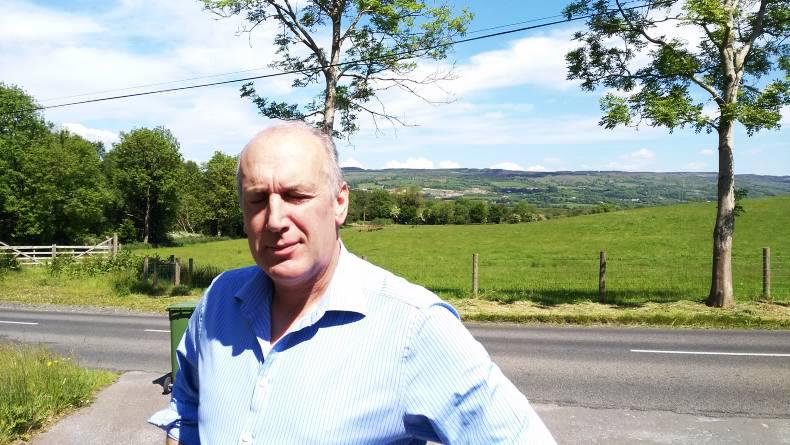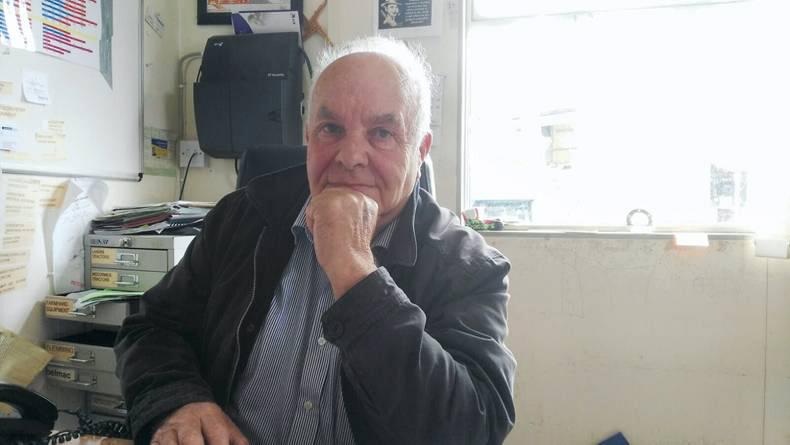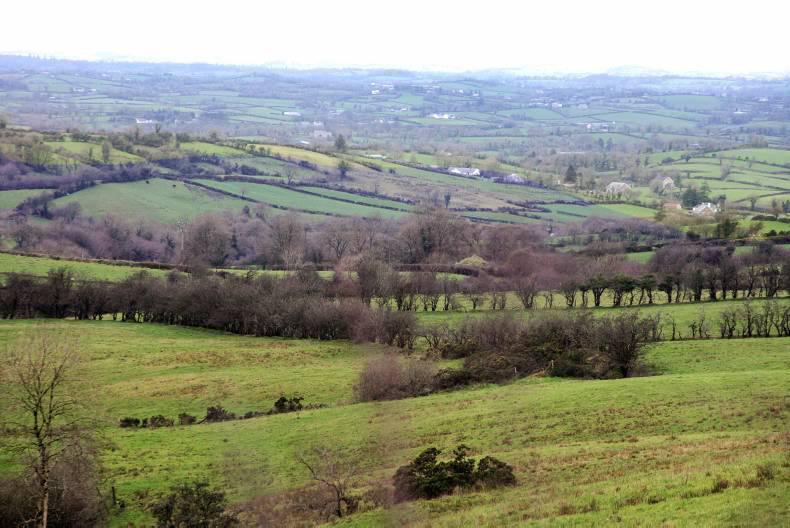Out: Jonathan Wilson, Churchill, Co Fermanagh
“Our Single Farm Payment is only a very small percentage of what the dairy can earn and our Single Farm Payment has only increased in the past year with the new regime which pays on an acreage basis,” said the young dairy farmer. “What I see, especially in Fermanagh, is that it is rewarding farmers who aren’t putting money back into the economy.”
Wilson said that 80% of his milk cheque goes back into the local economy through purchasing farm inputs such as fertiliser, spray, meal and labour.
“The hill guys that are getting big payments get it in and hold on to it, they spend no money, they’re sheep farmers. It doesn’t stack up economically.
‘‘Their output per hectare is very small and yet the reward that they’re getting from the EU is phenomenal and that money is not going back into the local economy. Whereas with dairying, we’re exporting as well, but we’re not reliant on that Single Farm Payment.
“What I think a lot of farmers are forgetting is that the Single Farm Payment is going to go anyway. It’ll be phased out over a period of time if we leave the EU. The market will dictate what they [the British government] will do but if the consumer is not willing to pay a better price then subsidies will have to come into it.”
He said that farming “is not a million miles off” the New Zealand model where there are no subsidies and world market price is what farmers get.
The Russian sanction “was all because of the EU and if it had not been for that, we could possibly be getting another 4p or 5p for our milk’’.
He said: “I don’t think the politicians are too worried about the farmer to be honest. Does it leave us more vulnerable? I don’t think it can get much worse. We’re already struggling to cover our costs of production. If the CAP wasn’t there, definitely a lot more farms would have to be run like a business. We’re competing at world market prices [already] and the small family farms are gradually disappearing.”
Wilson supplies Glanbia and he said that “the milk will still be fit to cross the border. It has to go through customs but it wasn’t prevented from crossing the border and there’s nothing to stop that from happening again. I think the dairy farmers in the south will be hit harder than we will.
“What I can’t understand is, the Government is desperate to keep us in the EU. We’ll just be picking up the invoice on 23 June. It looks like France is on its way out, the growth in the German economy is back to less than 1% and Britain seems to be forking out and forking out.’’
Wilson believes that “there’s no reason why trade shouldn’t continue to be as good as it is at present or improve if we leave”.
He criticised the US president’s comments about Britain securing a trade deal with the US.
“I can’t understand Obama. Of all the people to be lecturing us, they’re the country that are doing the opposite. They’re not worried about their own green policies on pollution.
‘‘They secure their own food – that’s why they put that policy in place to protect the margin protection scheme for dairying. To be taking advice off them is a wee bit rich I think.”
In: John Sheridan, Florencecourt, Co Fermanagh
John Sheridan farms along the border between the Republic and Northern Ireland. He vividly recalls cattle trucks lining the streets waiting for paperwork to be stamped by customs and the offloading of livestock for departmental checks before reloading to continue their journey.
“If the UK votes to leave, then a mile and a half down the road from me becomes a foreign country. We don’t want to be curtailed, we don’t like being insulated like that. We think, particularly, agriculture on the island of Ireland should be one, with no difference between north and south produce whatsoever. There ought to be free movement of trade in every shape and form.
“For a generation, the north hasn’t had the live export facilities of the south. We are still going to have to comply with present rules and regulations and, on top of that, if agreement was reached on trade and tariffs, we’re still going to have additional red tape on top of what we have at present to enable export into Europe. Bear in mind, it took the Canadians eight years to cut a deal with the EU.”
His biggest argument for staying within the EU is the size of the market available for agricultural produce.
“I remember when there was no EU and living in a border area in the very western periphery of Europe, and Westminster. When Europe came, it gave us the chance to sell our stock just as well as anybody outside of London, we’d have the same price more or less.
“It gave us access to the French trade, do you think for one moment the French will give us a market for lamb? The UK accounts for nearly half of EU sheep production.”
Europe “gave us infrastructure in our rural area. We had EU grant aid to build up our farms with concrete lanes, overwintering facilities, slurry storage, machinery and LEADER funding for a plethora of rural projects. It recognised our part in delivery of public good with environmental schemes”.
Of particular importance to Sheridan’s family farm is “the fact that the EU recognises the importance of new entrants and young farmers and have been encouraged to participate by an optional five years’ additional payments of €7,500.
“In our case, one of my sons has taken control of the family business in the secure knowledge that he can continue to run the family business and breathe new life into it as I step back.
“His forward projections and intended investments aided by EU funding will be jeopardised by a Brexit and his and the family’s hope for growth dashed. The insecurity of heading into the unknown would undermine his finance and could threaten the very existence of the farm.”
A self-confessed critic of the structure in the EU, Sheridan maintains that it has brought peace to Europe.
“Since World War II, we’ve had the longest period of peace,” he said, adding that it is all very well to go against the tide now that there is safety in food, employment and travel.
Listen to Irish agricultural economist Tom Arnold and farmer John Sheridan on why they believe the United Kingdom should remain part of the European Union.
“I can’t think of anywhere else in the world to live outside of Europe that’s better. I personally think that it has a stabilising effect on world peace; it had an effect through the Good Friday Agreement on peace between the north and south of Ireland.
‘‘Unfortunately, the human race are too fond of, when everything is fine, changing it until they fall out with themselves and begin to squabble again, conveniently forgetting why they came together in the first place!
‘‘Everywhere else in the world now has trading blocks, they have no choice but to stick together.” However, Europe is not without its criticisms and Sheridan described TTIP as “abhorrent”, adding that “it’s scary to think there is still a Mercosur deal floating around.
“However we can only effect change from within the EU. If you are out, who is going to listen to you?”









SHARING OPTIONS